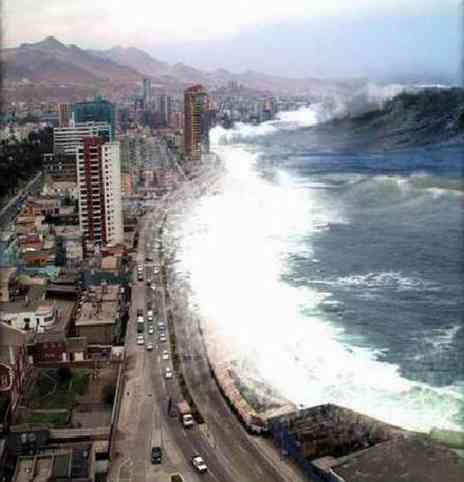
The brick grotto where Moscow zoo's bears live was today finally devoid of snuffling. After weeks of insomnia caused by the record mild winter in Russia, the six bears that live in the craggy enclosure have at last nodded off. Russia's famous winters may have scuttled the invasion plans of both Napoleon Bonaparte and Hitler but this year the winter has spectacularly failed to materialise in Moscow.
Meteorologists said that today was the warmest January day in Moscow since 1957, at 5.3C.
"Usually it's -18C by now," Tania Simyonova said, pushing her 18-month-old son Daniel past the empty bear enclosure. Nearby a polar bear dozed; in the next enclosure a dromedary jogged up and down.
"I think winter has been cancelled," Mrs Simyonova said, gazing at the drizzling sky and the zoo's stubbornly unfrozen duck pond. "If you want to see winter this year you have to go to Siberia or the Urals."
The non-sleeping bears are a tiny jigsaw piece in an alarming global puzzle of unseasonable weather. In recent months there have been erratic monsoons in Nepal, glaciers melting earlier than expected in the Himalayas, and rains heavier and more intense than usual in Malawi. In November, Australia experienced its worst drought for about 1,000 years.
In Europe, the mild temperatures have wreaked havoc on the skiing season, with Alpine resorts forced to fire up their snow machines. In Austria, hazel and alder trees have burst into flower. In Britain, the Met Office has predicted that global temperatures in 2007 have a 60% chance of becoming the hottest ever.
And it is not just Moscow's brown and Himalayan bears - one of them an unwanted gift to Russia's former president Boris Yeltsin - that have been suffering confusion. Two bears at a zoo on Bulgaria's Black Sea coast have also failed to go to sleep, staff said today.
"They are acting more like it is spring than the dead of winter," said Todor Hristov, zoo director in the port city of Varna, adding that temperatures had recently hit 13C.
In the snowy mountain regions of southern Europe it is the same story. Swallows are turning up in Spain 10 days earlier than 30 years ago, while beech and juniper trees have been creeping up the country's once barren mountains.
Over on the east coast of America, where by rights people should be hunkered down in eiderdown coats and fake fur hats, there has been a distinct touch of spring in the air.
The unseasonal climate is made apparent in visible peculiarities, from the cherry blossom in Prospect Park, Brooklyn, to the ice rinks in Manhattan that have been closed because they have turned to slush, and early budding of daffodils in the Bronx.
Today a brief flurry of snow was at last recorded in New York City - the latest of any winter in 129 years. It lasted just a few minutes and left barely a trace on the ground.
Federal weather experts say that temperatures across the US over the past month and more have been running six degrees above normal. Even in Denver, Colorado, which has had severe blizzards and heavy snowfalls, a monthly temperature in December of 1.7C above the average for the 30 years up to 2000 was recorded.
Most scientists agree that the exceptional weather patterns across America are due to a combination of the El Niño effect - the natural warming of the surface water in the eastern Pacific which happens every three to 10 years - and climate change.
Today the National Oceanic and Atmospheric Administration recognised the global warming impact of carbon dioxide for the first time in its annual review of US climate trends, which found 2006 to have been the warmest year since records began in 1895.
Back in Russia meteorologists said January was set to break all records in what is supposed to be the world's coldest country.
"We are experiencing some of the warmest temperatures in Moscow since our records began back in 1870," said Dimitry Kiktyov, deputy director of Moscow's meteorological office.
Mr Kiktyov said the only parts of Russia's territory that were now properly cold were the eastern parts of Siberia and the remote Far East. "We expect it to get colder in February," he added.
By Guardian Unlimited © Copyright Guardian Newspapers 2006
Published: 1/10/2007


No comments:
Post a Comment